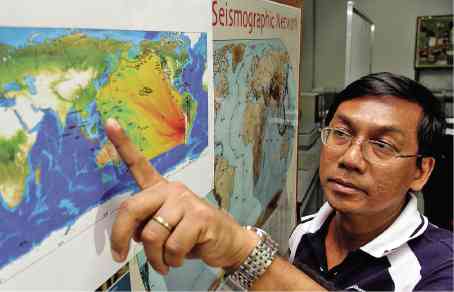Department for disaster risk reduction, management pushed

Renato Solidum
Philippine Volcanology and Seismology (Phivolcs) chief Renato Solidum has welcomed the proposed immediate creation of a Department of Disaster Risk Reduction and Management (DRRM), saying it would greatly reduce the estimated 48,000 loss of lives in Metro Manila and nearby provinces in case a 7.2-magnitude earthquake or the so-called “Big One” hits Manila.
Speaking during the third Disaster Resilience Conference for Persons with Disabilities (PWDs) and Senior Citizens sponsored by SM Cares, the corporate social responsibility arm of SM Supermalls in partnership with Phivolcs and Metro Manila Development Authority, at the Mall of Asia, Solidum said the creation of a department on DRRM was long overdue considering that the Philippines is one of the most disaster-prone countries in the world.
President Duterte has called on Congress to create the proposed department.
“We have long been in discussion to elevate the matter of DRRM to a department level because R.A. 10121 or the Philippine DRRM Act is under review. The country is prone to various disasters. Aside from rescue and response, we should also focus on disaster mitigation, preparedness, prevention efforts so those who will be affected will be fewer,” Solidum said.
Solidum had said the “Big One” could strike anytime.
Having a Department of DRRM, he pointed out, will expand the focus to include disaster preparedness and mitigation which will not only be more cost-effective but will save lives and properties.
“There would be more concerted effort and there will be people whose focus will only be on DRRM and not only on search and rescue,” he said.
He pointed out that if nothing was done to prepare for the so-called Big One, an estimated 48,000 people would die in Metro Manila and nearby provinces.
He added that many of those who would perish would be PWDs and senior citizens because of their physical limitations and personality vulnerabilities.